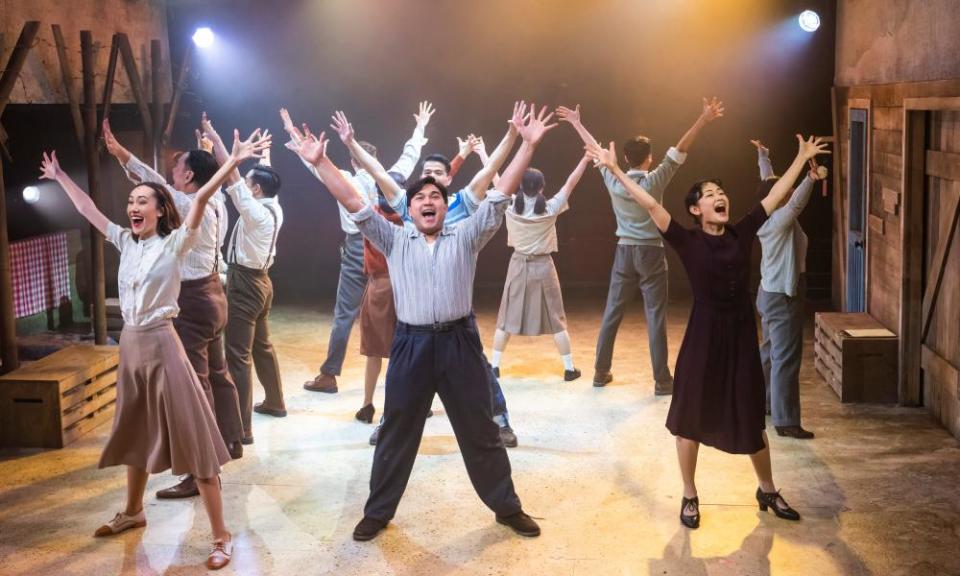George Takei’s Allegiance review – shocking history given musical uplift

This musical, inspired by George Takei’s early life, tells of how approximately 120,000 Japanese Americans – men, women and children – were forced into internment camps in 1941, following the attack on Pearl Harbor.
The Kimura family, comprising father Tatsuo (Masashi Fujimoto) and his California-born children, Sammy (Telly Leung) and Kei (Aynrand Ferrer), along with their grandfather (Takei), are taken to a camp in Wyoming. They become ideologically split after being forced to prove allegiance to their country although as Sammy says: “We are Americans.”
Given the importance of this appalling moment in US history and its resonance with the debates on immigration, identity and nationhood today, this production should carry enormous weight. That it does not is frustrating.
Potent ideas are touched on: Sammy demonstrates his passionate patriotism by enlisting while others in the camp like Frankie (Patrick Munday, very good), refuse to fight for a country that has defined them as “enemy aliens” and inflicted harm on their families. Takei’s character grows vegetables and gives the surplus to the army: patriotism clearly comes in different forms.

But none of this carries the emotional force it should. Transferring from New York, the show bills itself as an “uplifting Broadway musical” and therein lies the problem, perhaps.
Directed by Tara Overfield Wilkinson, with a book by Marc Acito, Jay Kuo and Lorenzo Thione, it feels long at almost two and a half hours but its scenes move too fast and breezily, telegraphing the camp’s horror but also containing heavy helpings of schmaltz. Love stories bloom while some die and their ghosts return to watch their loved ones, and sing.
Takei is charming in his part but these characters do not become individual or full-bodied enough. The show throws out song after song (music and lyrics by Kuo) and too many of them are unmemorable. The music is rousing, sometimes with a distantly martial beat, but at other times oddly bouncy. The performances are uniformly strong though, as well as the singing, especially from Ferrer whose voice is both powerful and delicate. But we end up simply not feeling strongly enough for a story that should appal and outrage us.
At Charing Cross theatre, London, until 8 April

